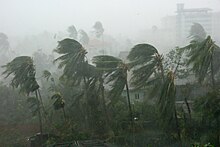Continuing with my six weeks of writing posts for NaNoWriMo....From a reader's email:
Q: Why natural disaster novels? Isn't that sort of mean of
you?
A: Yes, I suppose it is. Next?
Seriously, I don't intend to be
mean, or to belittle anyone's losses during a real natural disaster. I've been
in one serious disaster, and it was mildly frightening (also, I confess, exhilarating) and
I got close to another two that were terrifying just to see from a distance. My losses were minor
in the earthquake I experienced, but I know others' were not. I really don't mean to be hurtful in choosing this topic.
 |
| All images, Wikipedia Commons |
As a writer, I like to give characters a dramatic event to
deal with to show who they truly are. We reveal our personalities in crisis. We
are changed by the frightening events of our lives, not by the predictable daily routine. In a big disaster, we come
to understand what's really important in our lives. Our mettle is tested. To
me, that makes for interesting stories.
Also, I love weather and geology. Plate tectonics is soooo
cool! When I can afford a vacation, I often visit erupting volcanoes. I watch wall-to-wall local TV coverage, online, of hurricanes. Maybe it is a
ghoulish side of me, but I'm fascinated with big destructive forces. I enjoy
being reminded how small I am in the face of this power.
What is most frightening about real natural disasters is sometimes not the wind or the shaking but the
social decay that can surround them. Everything from price-gouging through
looting through people shooting at their rescuers: its horrifying and not at all entertaining to live through. Those are also the hardest parts of my novels to
write. I don't like thinking about people at their ugliest. I like thinking
about us at our most heroic. Natural disasters do bring out the hero in many
people...but they bring out the demon in others.
In my own small way, I also hope I can subtly encourage
disaster preparedness in readers. I'm a big fan of the CERT program--Citizen's Emergency
Response Teams--here in the US, with classes often given by your local fire
department. (I don't know, for my UK and Canadian readers, if there is an
equivalent in your countries, but a place to begin to ask would be your local fire department--and drop me a line through comments if you find that out and I'll pass it along!) I've learned through these programs and hope some of my readers do, too.
I also encourage everyone to have a disaster kit--three days
of food and water for the whole family, including pets. (I have a detailed post
about that here). Another form of preparation is knowledge. If you live in an
area that has a recurring sort of natural disaster, the more you know about it,
the better off you'll be when it comes. The people who are prepared in my
novels, like the people who are prepared in real life, fare better.
Mostly, of course I want to entertain with my books. But if I educate readers a little too, that makes me happiest.
Mostly, of course I want to entertain with my books. But if I educate readers a little too, that makes me happiest.



Thanks
ReplyDeleteI lived through hurricane Katrina so I know how important it is to prepare for mother nature’s wrath. One of the most important things to have is water filter straws they are key to ensuring you have a sustainable water supply. Thanks for writing this article by the way.
ReplyDelete